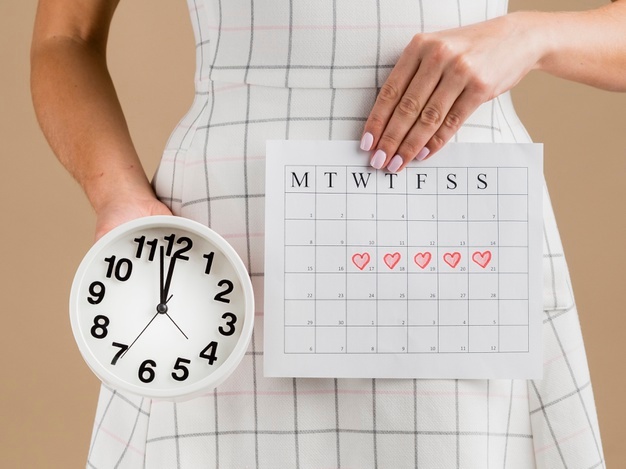Ovulation- how long does it last?

I can assume two reasons why one might be interested in reading about ovulation in specific. Either they are family planning, or they want to avoid pregnancy. Whatever the reason is, it is always a great thing to acquire knowledge that enables you to take things under your control. Ladies, it’s time you take maximum advantage of the technology at hand to educate yourself and your daughters.
Menstruation and ovulation
Women are generally born with around 1mn. to 2 mn. Eggs, but alternate ovaries release just one egg each month. The egg travels via one of 2 fallopian tubes that attach your ovaries to the uterus. This happens due to the interaction of various hormones produced by the hypothalamus, pituitary, and ovaries playing a vital role. The important hormones are:
- Follicle Stimulating Hormone (FSH) that induces the growth of follicles inside the ovary.
- Progesterone thickens the uterus’s inner lining, the endometrium, which supports the fertilized egg after the fertilization.
- Luteinizing Hormone (LH) triggers the release of a mature egg from the ovary, a process known as ovulation.
Ovulation is a process occurring during your menstruation cycle. Studies reveal that the menstruation cycle is much more variable than the textbook definition of 28 days. This 28-day cycle does not apply to every woman. Similarly, the ovulation day varies in women.
If this mature egg and sperm fertilize in the fallopian tube, it implants in the uterine lining and grows to become a fetus. And if fertilization does not occur within twenty-four hours of the egg leaving the ovary, this egg is dissolved into the endometrium wall and shed during menstruation. Though sperms can live for 3-5 days and during an ovulation period of around 6 days, there is a potential for conception. Hence, it is essential to know when you ovulate to understand when you should plan to have sex, whether to get pregnant or to avoid conception.
How long does ovulation last?
Studies support that around six days; a woman gets each month when intercourse can lead to pregnancy. Ovulation can occur on the 14th day of the menstruation cycle, or it can vary and can last for a few minutes or hours, but days before and after ovulation can also act in your favor. You get this fertile window because of the sperm’s ability to act dead and live up to 3 to 5 days.
References:
https://www.ncbi.nlm.nih.gov/books/NBK279054/
https://www.ncbi.nlm.nih.gov/pmc/articles/PMC7164578/

